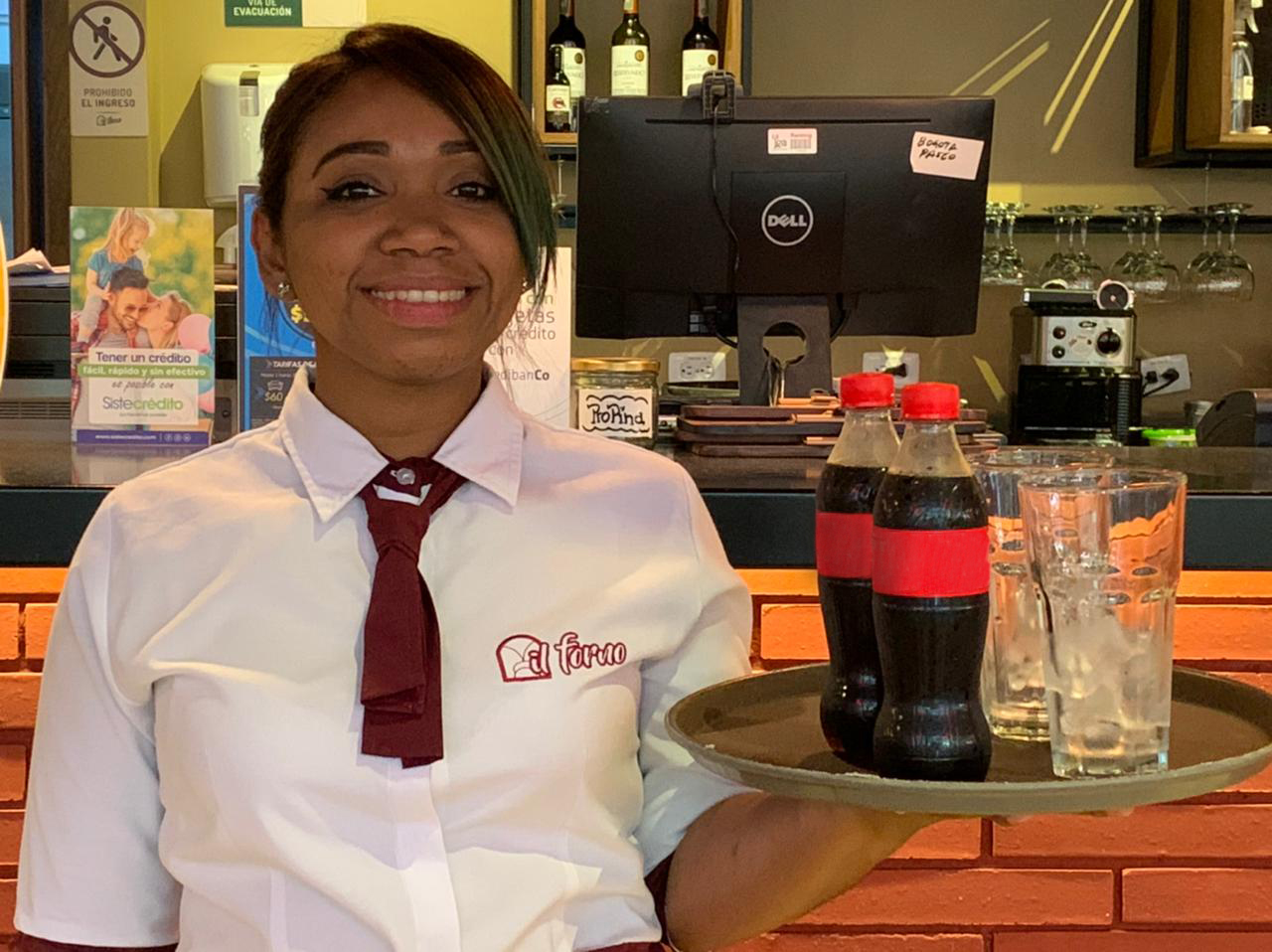Maria, a modern-day heroine
Story

The Venezuelan refugee crisis is the largest in Latin American history. It is estimated that there are currently 1.7M Venezuelan refugees living in Colombia. Of special concern are the women crossing at irregular pathways, putting their lives at risk. Women like 34-year-old María Alejandra Batista, who fled her country to create a better future for herself and her two daughters.
After contacting her maternal grandmother who lived in Colombia, Maria, a victim of domestic abuse and living in a community plagued by violence and limited resources made the difficult decision to pack up her daughters and what little she had and make the three-day trip to Colombia. “It gave me some comfort knowing a family member would be there to greet us when we arrived,” says Maria.
A trained hairdresser, Maria was hopeful she would find work to provide for herself and her daughters. Having depended solely on her husband for finances, this step forward was both overwhelming and scary. The competition in the hairdressing sector is fierce in Colombia. “The most affected economic sectors impacted by COVID-19 are the food and service industry, tourism as well as retail, where most migrants are trying to find work right now,” says Alejandro Matos, Cuso International Country Director Colombia.
Maria was able to secure work as a part-time hairdresser, a cleaner and an attendant at a gas bar doing shift work between 8:00 p.m.– 4:00 a.m. Though she was pleased to have found work, Maria knew that to successfully support herself and her daughters she needed to find work that offered stability.
In response to the refugee crisis and the increased rates of unemployment in Colombia, Cuso International’s Sustainable Colombian Opportunities for Peacebuilding and Employment (SCOPE) project is providing employment and business training to vulnerable populations (youth, women, victims of conflict, returned Colombians and Venezuelan migrants) in eight cities across Colombia. Women like Maria are being educated and trained in the in-demand telecommunications and hospital service sectors through this initiative. “This project creates access to long-term income generating activities for both migrants and community members by working hand-in-hand with employment agencies and local partners,” says Alejandro. “Many companies are discovering the talent of migrants and how they can contribute not only to individual economic independence, but also to building local capacity in communities across Colombia.”
The message Maria leaves for other women suffering from abuse and violence is this, “it is possible to get ahead amid adversity and pain, women need to be heroine’s that young girls can look up to. I am proud to be a heroine for my two girls.”
You can help more women at risk by making a donation today in Maria’s name.